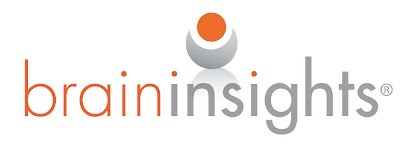During brain presentations, participants frequently ask if DVD’s or programs to teach babies to read are a good idea. I recently had grandmother ask if these are good gifts to give. I so appreciate these questions because this gives me the opportunity to continue to create the awareness that these are NOT good for children. It also provides the chance to share how much more advantageous book reading is for optimal learning and brain connections.

It is difficult for many well intentioned parents and grandparents because these products are marketed to say they are good for early development. The reality is they are just the opposite of what growing brains need!
The National Scientific Council on the Developing Child reports:
“Although a varied array of experiences clearly stimulates learning in the preschool years, promotional statements about the superior brain building impacts of expensive “educational” toys and videos for infants and toddlers have no scientific support.”
Sharing books with children however has been proven to benefit learning in numerous ways. Reading books to children needs to begin in infancy.
- When a child is read to, cells in the brain are triggered within seconds. Some existing connections in the brain are strengthened while new connections are formed. This helps create a more defined and complex wiring in the brain. Repeated book reading experiences strengthen connections, which will benefit a child for life.
- Reading to a child is so important that the American Academy of Pediatrics now recommends that pediatricians prescribe reading activities to parents during their well child visits. The AAP also recommends no television for the first two years of a child’s life.
- When reading a book, the child has the opportunity to hear direct language. The brain makes connections for language development only through experiences of being spoken to directly. Television and DVD’s do not provide the give and take of interactive language.
- A National Wildlife Federation report states, ““By the time most children attend kindergarten, they have watched more than 5,000 hours of television–enough time to earn a college degree.”
- Studies have shown that children who are read to at home have a higher success rate in school. The National Commission on Reading found that reading aloud to a child is the single most important intervention for developing literacy skills.
Literacy skills development isn’t the only brain benefit that results from reading to a child.
- The time spent cuddling while reading is also very important. This closeness helps the brain make valuable connections contributing to healthy emotional development. Young babies also find the sound of the voice reassuring and calming.
- Reading with children also presents the possibility for children to open up about feelings or things that are bothering them in a comfortable way.
- Books also provide a way for adults to begin discussions to help children gain new perspectives and learn about people, places and things outside of their immediate environment.
The tag line I often use for braininsights is, "Inspiring REAL brain development for ALL young children." Several of the points above are the reason I stress the word "REAL". Through sharing information based on scientific research, we can ensure that children have interactions with people and real objects. We will not be promoting the use of items that are detrimental, we will instead provide all that developing brains REALLY need!
For for information and REAL brain development activities ideas to use in everyday life go to www.braininsightsonline.com.
F









